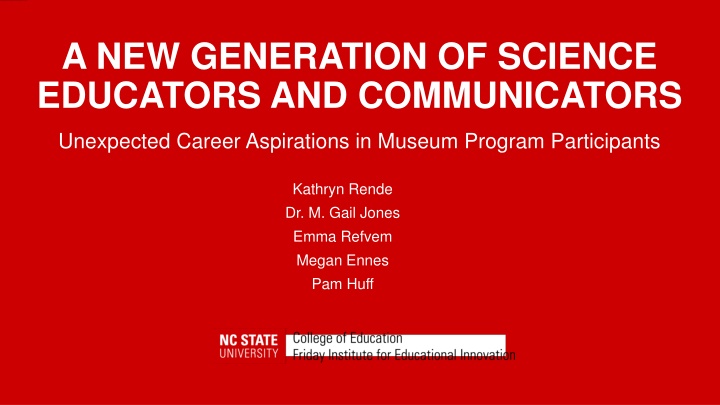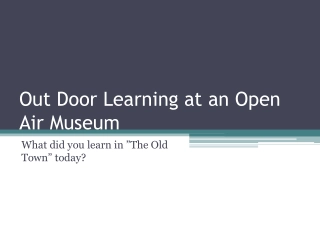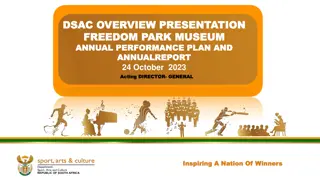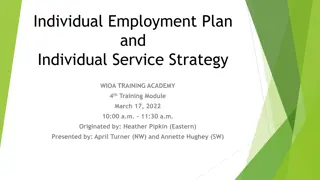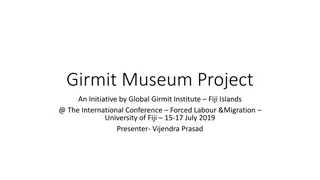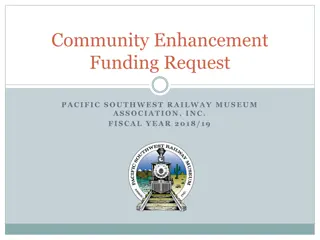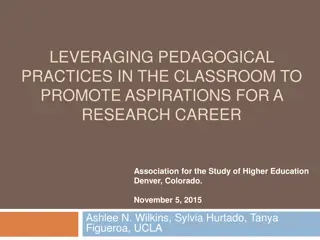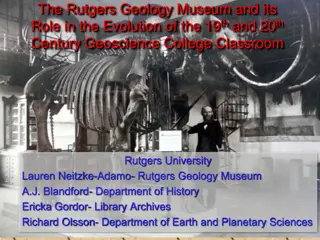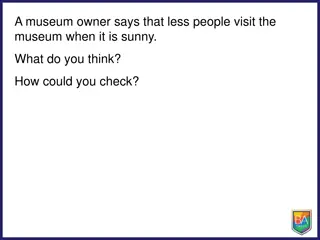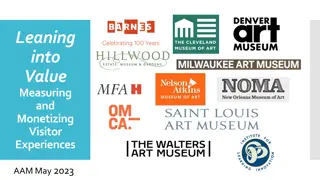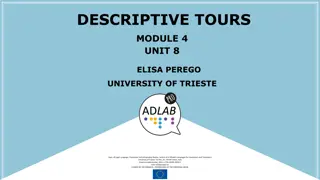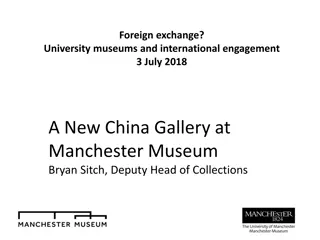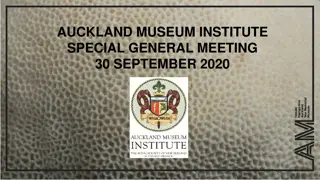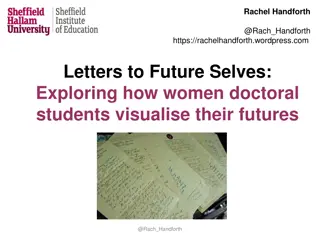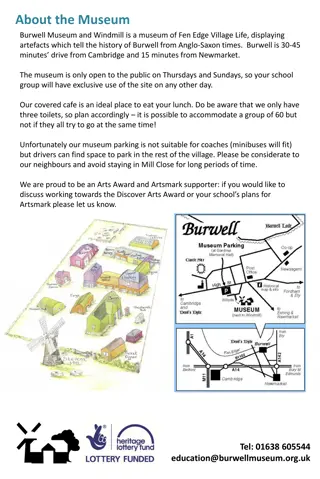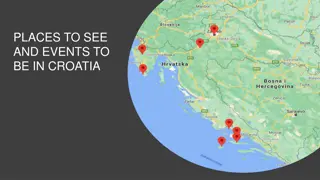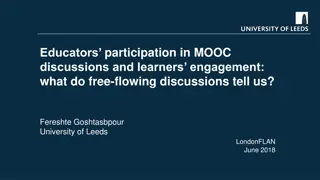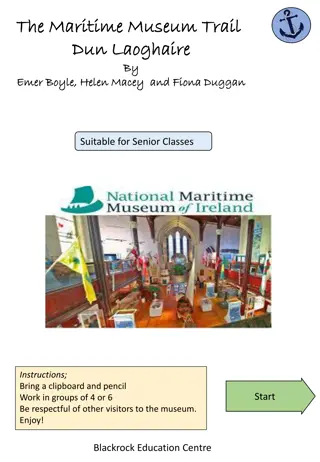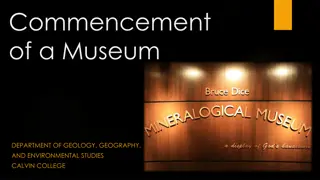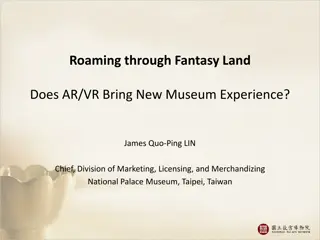A New Generation of Science Educators and Communicators: Career Aspirations in Museum Program Participants
Benefits of informal STEM education, the need for science educators and communicators, and the impact of science museum programs on career pathways are explored in this research study. The study employs Social Cognitive Career Theory to investigate participants' experiences volunteering in a science museum and their subsequent academic and career interests.
Download Presentation

Please find below an Image/Link to download the presentation.
The content on the website is provided AS IS for your information and personal use only. It may not be sold, licensed, or shared on other websites without obtaining consent from the author.If you encounter any issues during the download, it is possible that the publisher has removed the file from their server.
You are allowed to download the files provided on this website for personal or commercial use, subject to the condition that they are used lawfully. All files are the property of their respective owners.
The content on the website is provided AS IS for your information and personal use only. It may not be sold, licensed, or shared on other websites without obtaining consent from the author.
E N D
Presentation Transcript
A NEW GENERATION OF SCIENCE EDUCATORS AND COMMUNICATORS Unexpected Career Aspirations in Museum Program Participants Kathryn Rende Dr. M. Gail Jones Emma Refvem Megan Ennes Pam Huff
A Need for Professionals Scientists, Educators, Communicators Careers in science and engineering are growing rapidly with more than 9 million STEM jobs expected to be added to the U.S. workforce between 2012 and 20221. Accompanying the need for scientists, there is a growing need for science educators and communicators who can support public understanding of complex science issues.
Benefits of Out-of-School STEM Informal Education and Career Pathways While the literature indicates that after-school and informal science education programs have the capacity to generate interest in science and expose youth to a variety of STEM career pathways, little research exists on the role of these programs in encouraging complementary career paths in science education or communication.
Theoretical Framework Social Cognitive Career Theory2 (1) How academic and career interests develop. (2) How school and career choices are made. (3) How academic and career success is obtained. (4) Measures of interests, abilities, values.
Research Questions Investigating science museum programs: After participating in a science museum volunteer program, do youth select college majors in STEM fields, science communication or science education?
Methodology & Participants Case Study Design Twenty-one participants were interviewed about their experiences volunteering in a science museum during high school. Data were coded for factors related to social cognitive career theory.
Analyses Qualitative Coding Transcripts were open coded for themes related to social cognitive career theory and included: teaching, communication, competence, performance, recognition, science self-concept, science interest, career interest, and college interest. A code book for subsequent coding was developed. Interrater reliability of 0.83 (Krippendorf s Cu-Alpha coefficient Thematic analysis
Initial Findings A New Generation of Educators and Communicators Of the program participants who went on to college, 52.4% stated they are currently working in or are pursuing a career directly related to science education and teaching (outreach, informal, high school science, professorship), with 60% of remaining half still desiring a job where teaching science or communicating science to the public was part of their job requirements.
Results Volunteer College Major Choice
Results Volunteer College Major Choice
Results Volunteer College Major Choice
Conclusions Implications These results suggest that museum volunteer programs may be places to foster and recruit the next generation of science teachers and science communicators. They provide important insight into how to develop teaching career motivations and interest
References Selected References 1. (U.S. Bureau of Labor Statistics, (2014). Retrieved from https://www.bls.gov/bls/newsrels.html 2. Lent, R. W., Brown, S. D. and Hackett, G. 1994. Toward a Unifying Social Cognitive Theory of Career and Academic Interest, Choice, and Performance [Monograph]. Journal of Vocational Behavior 45:79- 122.
Contact PI: Dr. M. Gail Jones, NC State, mgjones3@ncsu.edu Kathryn Rende, NC State, knrende@ncsu.edu Emma Refvem, NC State, ejrefvem@ncsu.edu Dr. Megan Ennes, University of Florida, mennes@floridamuseum.ufl.edu Pam Huff, NC State, pmhuff@ncsu.edu
